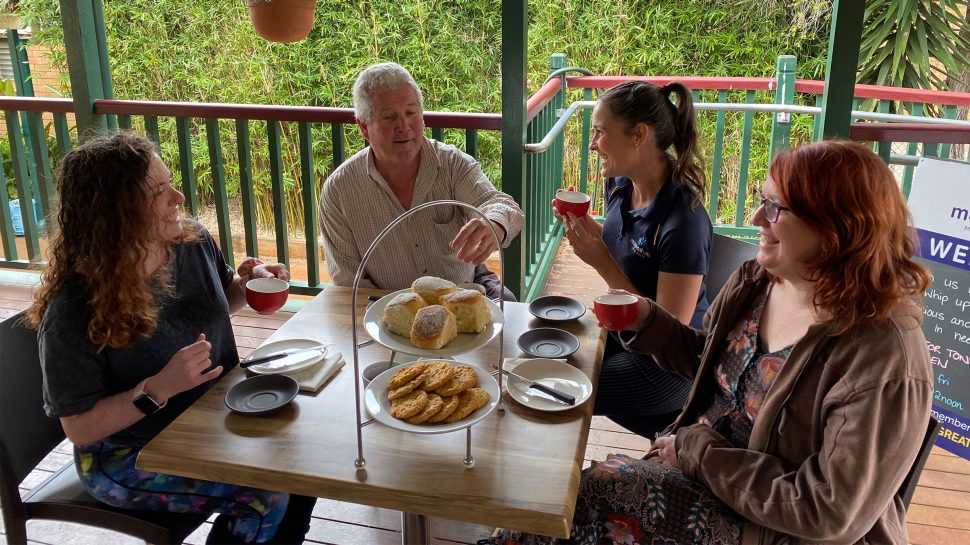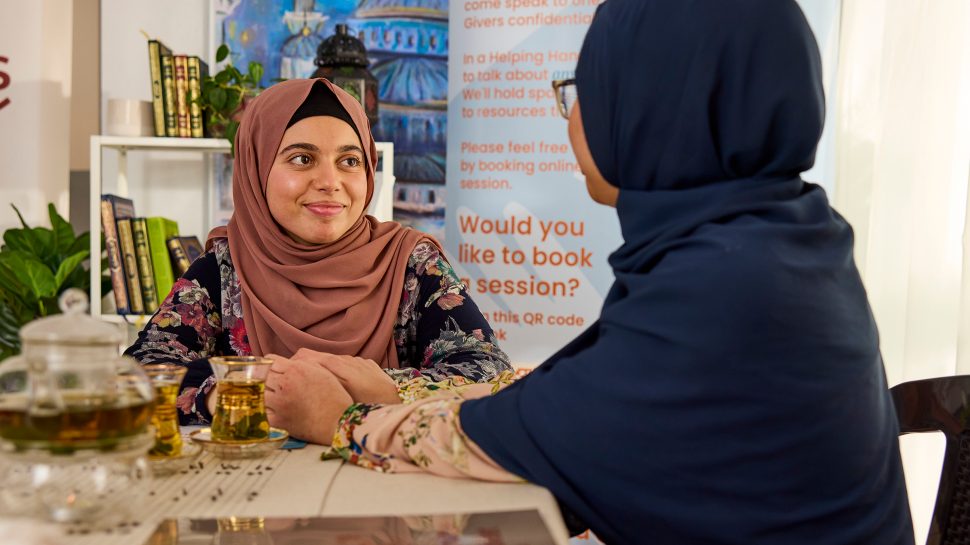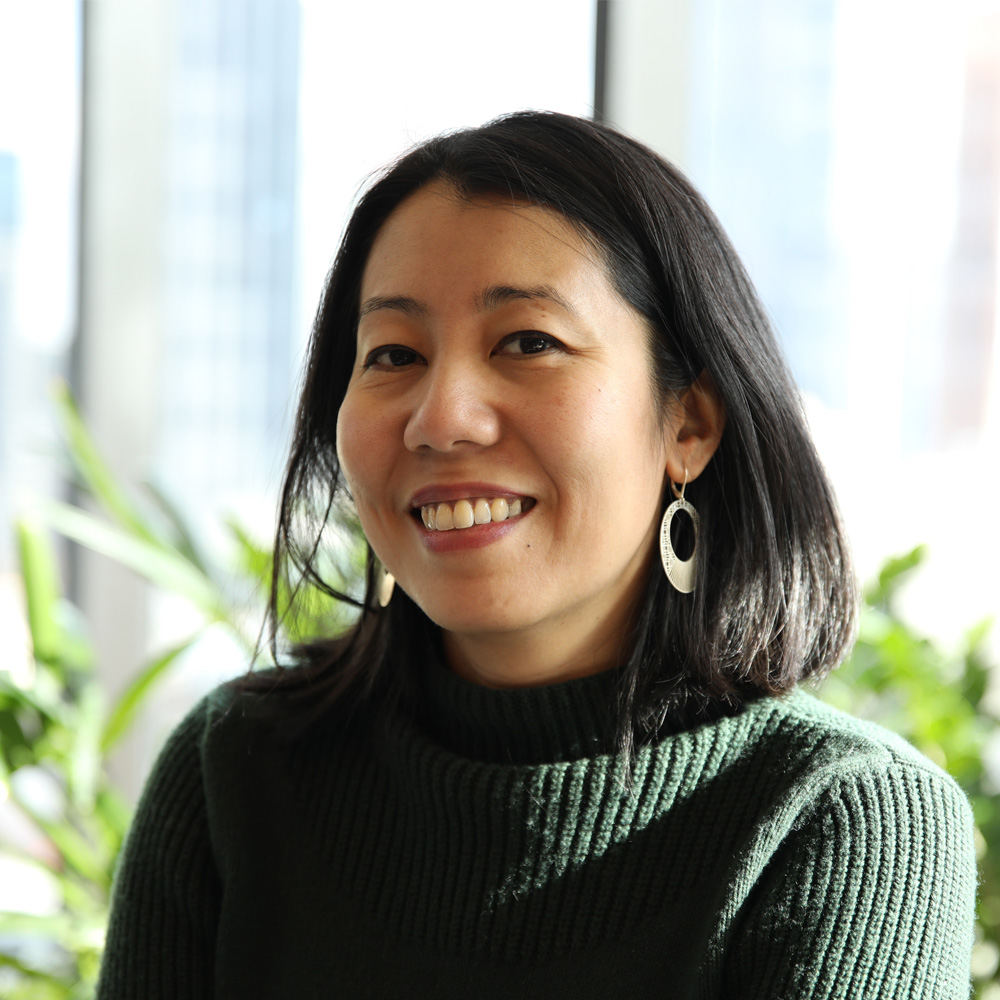How City East Community College used a Community Grant to support its Mentor Program
The City East Community College launched the Mentor Program to help professionally skilled migrants, refugees and asylum seekers find employment in Australia. The college is now using an Australia Post People of Post Grant to support one of its Networking Evenings for the Mentor Program community.

Minette Mendens from Australia Post is a volunteer mentor and nominated CCEC for a 2023 People of Post Grant.
Oksana spent the first two years of her new life in Sydney applying for more than 300 engineering jobs.
She arrived from Ukraine as a qualified project engineer but, without the pre-requisite local work experience in her CV, she struggled to convince employers that she was a right fit.
Well-meaning contacts advised Oksana to consider a different career path in aged care or childcare but this further eroded her confidence.
“It was disappointing and frustrating and I felt unsuccessful,” she said.
Then she heard about the Mentor Program initiated and run by the City East Community College (CECC), a not-for-profit Adult and Community Education provider and registered training organisation in Bondi Junction, NSW.
That program changed her life.
A pathway to employment
The Mentor Program was launched in 2016 to help professionally skilled migrants, refugees and asylum seekers find employment in Australia while strengthening social connection and cohesion. It also fosters social inclusion, cultural awareness and diversity.
Job seeking professionally skilled migrants, refugees and asylum seekers confront many nuanced and complex employment pathway barriers associated with system navigation, local network experience and cultural unfamiliarity.
Many skilled migrants like Oksana often end up in unskilled jobs like driving an Uber, cleaning houses or washing dishes–roles that don’t reflect their skills, qualifications and experience.
The Mentor Porgram views this ‘brain waste’ as a significant and disappointing loss to the individual, their family and the Australian community.
Mentor Program Coordinator, Margaret Teed, says, “Our candidates have functional English and solid skills and qualifications from their home country. Some have even done additional qualifications in Australia and all have full working rights.”
“But when they arrive here, they’re expected to know how and where to find work without any social or professional networks. It’s unrealistic.”
“They might not have local work experience but they have motivation, resilience, determination and persistence. Those are qualities that are not easily taught and that all employers value.”

The Mentor Program helps professionally skilled migrants, refugees and asylum seekers find employment and build social connections.
Once enrolled in the program, candidates are matched with volunteer mentors from the Australian workplace.
Mentors and mentees connect every fortnight for six months to talk about job-seeking strategies, professional networking and the Australian workplace culture.
“In addition to one-on-one mentoring, we facilitate upskilling courses, webinars, networking and mock interview events,” Margaret says. “This is much needed support and guidance for candidates seeking to navigate the Australian professional employment landscape.”
Companies including Aurecon, Deloitte, KPMG, Partridge Engineering, Publicis Sapient and UGL host mock interview and networking events to assist with upskilling jobseekers from the Mentor Program.
Oksana was accepted into the Mentor Program and matched with the General Manager of Infrastructure at an engineering company, UGL Limited. When the mentoring period was up, she was offered a role at UGL Limited.
Since its launch, the Mentor Program has successfully matched more than 600 job-seekers with mentors. Over 65% of those mentees have secured employment in their chosen profession within five months of having a mentor.
Minette Mendens, an Account Manager at Australia Post, has been a volunteer mentor in the program for the past year and nominated CCEC for a People of Post Grant in 2023.
“So far, I have coached two candidates and found the experience fulfilling on several levels,” Minette said. “But most importantly, it was so good to help new migrants—not only with their job search—but also, to grow confident in their individual uniqueness and strengths.”

The Networking Evenings bring the Mentor Program’s community together.
People of Post grant to support Networking Evening
In May 2023, the Mentor Program received word that it was among the 438 community organisations to be awarded a grant of up to $1,000.
The program will use this grant to assist with funding a Networking Evening. These events are held twice a year and bring together the Mentor Program community of mentees, mentors, project partners and supporters to share knowledge and experience.
The Networking Evenings will help create an opportunity for career mentoring and cross-cultural conversation, while offering the chance for community members to share knowledge and experience in a supportive environment.
“We receive no government funding for this program,” Margaret said. “The program runs at the benevolence of the college and its charitable supporters. That's why grants like this one are so important.”
“Since the migration tap was turned on again this year, I’ve been receiving a lot more applications from job-seekers through referral pathways like TAFE, the Asylum Seekers Centre, the Jesuit Refugee Centre and word of mouth in the community. Demand for the support offered by the program has never been higher.”
The Mentor Program not only helps jobseekers like Oksana find a more suitable path in life and work, but positively impacts the Australian economy by connecting skilled professionals with the right opportunities.
Grants like this one from Australia Post, supported by volunteer mentors, will help the Mentor Program continue to foster career growth and cross-cultural dialogue in the professional space.
Connecting local communities
Connecting local communities
Australia Post is delivering the goods for local communities with grants to support mental wellbeing. Because when we connect, we feel better.


